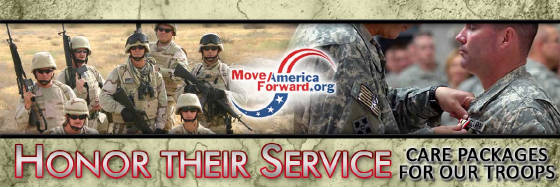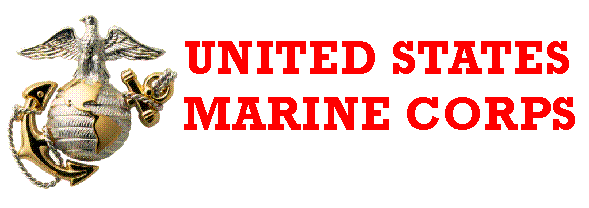 |
|
The Hostage Rescue Attempt In Iran, April 24-25, 1980
|
|
20th Anniversary of the Hostage Rescue Attempt
|
 |
 |
|
| CLICK HERE TO SEND CARE PACKAGES TO OUR TROOPS |

|
April 26, 2000
Desert One Heroes are Honored for sacrifice.
By Arlo Wagner, The Washington Times
Four year old Cailin Mayo ignored the cold, April rain yesterday as she placed yellow roses on the grave of the grandfather
she never knew.
At her side at Arlingon National Cemetery, in only his shirtsleeves and apparently oblivious of
the weather, was her father, Douglas Mayo of Roseville, Mich. He is one of four sons of Air Force Tech Sgt Joel C. Mayo,
who was being honored.
Sgt. Mayo was 34 years old when he and seven comrades died exactly 20 years ago during an
aborted mission to rescue the 53 American hostages in Iran.
Ultimately. the hostages were freed. Yesterday, nearly
a dozen were among 200 friends, relatives and servicemen--most standing instead of sitting on wet folding chairs--to honor
the fallen heroes in a rememberance ceremony.
"They gave their lives that others might live," said Lt.
Gen. James B. Vaught in a prayer during the ceremony about 100 yards from the Tomb of the Unknowns.
Gen. Vaught
was one of the commanders of the Iran Rescue Mission code-named Eagle Claw.
"Eagle Claw was one of the most
daring [rescue missions]," said Gen. Henry H. Shelton, chairman of the Joint Chiefs of Staff.
"The sheer
audacity of it," Gen. Shelton said, focused on bravery and indomitable spirit.
Unexpected aircraft failures
had caused commanders to abort the rescue mission. At the site called "Desert One", the rotary blade of a helicopter
containing three Marines( Note: There were 5 Marines on board, 2 pilots and 3 crew) hit the fuselage of a C-130 transport
plane. Both aircraft burst into flames.
The Marines died instantly. On the C-130, the Captain, though mortally wounded,
stayed at his post, directing the other occupants to evacuate. Three crew members remained and died trying to rescue the
captain. Sgt Mayo, the flight engineer, performed his duties of fire control so others might escape--until it was too late
to save his own life.
Former hostage Richard Morefield said the deaths of the 5 Airmman and three Marines "profoundly
changed my life."
Without their unselfish and heroic actions, Mr. Morefield said he could not have escorted
his daughter down the wedding aisle or watched his son graduate from High School.
He said the heroes demnstrated
3 kinds of love.
"Love of country was exemplified by them," he said, followed closely by love of family--so
important to America, and love of friends--since several of the heroes died while trying to save their comrades.
The
memorialized heroes are Marines: Sgt. John D. Harvey, 21, Roanoke; Cpl. George N. Holmes Jr., 22, of Pine Bluff, Ark.; Staff
Sgt. Dewey L. Johnson, 31, of Dublin, Ga; and Airmen: Capt. Charles T. McMillan II, 28, of Corryton, Tenn.; Capt. Lyn D.
McIntosh, 33, of Voldosta, Ga.; Maj Richard L. Bakke, 33, of Long Beach, Calif.' Sgt. Mayo, of Harrisville, Mich.; and Maj.
Harold L. Lewis Jr., 35, of Fort Walton Beach, Fla.
"My father was proud to be an American," said Lauren
Beth Harvey, 21, daughter of Sgt. Harvey.
Miss Harvey choked back sobs as she led the audience in the "No
Greater Love Pledge of Peace," which was written in 1985 for children. It concludes, "I promise to do everything
I can to help create a common future of peace and justice for all human beings."
The pledge has been recited
over the past 15 years by "hundreds of thousands of youngsters the world," said Angelo Bianco, president of the
Eastern Paralysed Veterans Association who introduced Miss Harvey.
No Greater Love, a non-profit organization that
sponsored yesterday's program, has conducted scores of rememberance programs, during the last 20 years, for Americans who
died in service to their country, or as victims of terrorists.








|
 |
|

Click on the Link to go to the original web site for the next article
This is an article from The Christian Science Monitor. All articles are copyright year of publication by the Christian Science
Publishing Society. The Christian Science Monitor, e-Monitor and other related marks used on this site are trademarks owned
by The Christian Science Publishing Society. All materials contained in The Christian Science Monitor Web site are protected
by copyright. Materials may be downloaded and copied for personal non-commercial use only. In the event of such use, all
copyright and other notices and clear attribution to The Christian Science Monitor must be maintained. The materials may
not be modified, retransmitted, or used in whole or in part, in derivative works. All other uses, including reprinting, republishing,
broadcast or any further distribution require written permission from The Christian Science Publishing Society. To request
permission to reproduce copyrighted material from our Web site, or to ask general questions about our reprint policy, e-mail
us or contact: The Christian Science Publishing Society A72 Attn: Copyright Administrator One Norway Street Boston MA 02115
phone: 617-450-2026 fax: 617-450-2031 <title>Opinion and Essays - It's Time for the US and Iran to Sit Down and Talk</title>
Thursday March 12, 1998 Edition
It's Time for the US and Iran to Sit Down and Talk
By Bruce Laingen
When I was a hostage in Iran, often venting my frustration with those who held us, one of the more friendly of
them would sometimes try to reassure us by reciting a Persian proverb: Nothing ever stays the same forever.
It
will soon be 20 years since Iran and the United States had an official relationship. While that may not rank as forever in
relations between states, it is a long time. But recent signals back and forth between the two governments, however tentative,
suggest that perhaps the Persian proverb may have some relevance. It should: America's interests are ill served by what prevails
today.
President Mohammad Khatami, in his CNN interview, after asserting that Iran does not need official relations
with the US, spoke instead of educational, cultural, and other private exchanges, to begin to widen a crack in the "wall
of distrust" that exists between the two countries.
Soon thereafter, the US posed "no objection"
to American wrestlers traveling to Iran; they found an enthusiastic welcome, as do, without exception, those few American
tourists visiting there. Current restrictions on Iranians seeking visas to enter the US are said to be under review. Foreign
Minister Kamal Kharrazi tells the press that the ball is in the US court.
President Clinton, in a message to Iran
at the end of the fasting month of Ramadan, noted with regret the "estrangement" between the two countries and
said while the US has real differences with some Iranian policies, "these are not insurmountable" - the most positive
public statement from the US side in years.
Not that widening the crack will be easy. A 20-year legacy of distrust
is not easily overcome. Both governments have major concerns about the other's policies. They are well known and long recited,
to the point where they have become holy writ.
Mr. Khatami's freedom of movement is constrained by the contest for
both political and Islamic ascendancy under way in the body politic of Iran. But clearly there is something new in the air
- a sense that perhaps something may be possible, that neither side can afford continued confrontation.
On the
Iranian side, Khatami certainly knows that private exchanges risk inevitably putting pressure on him to consider openings
in official contacts, too. Moreover, his assertion that Iran doesn't need the latter is nonsense. Surely he knows better
- the state of Iran's economy alone dictates that need, not to mention the reality of the American political/military presence
in the Gulf region that is not going away soon.
And on the American side, the current crisis with Iraq must
certainly have triggered a new awareness among policymakers of the reality of Iran for our strategic interests in the region.
A country with the potential for regional dominance in the Persian Gulf, long a major crossroads east and west, and now a
place of some north/south consequences for both the oil and politics of Central Asia, is one with whose government the US
must somehow find a way to deal directly. How else can our differences be addressed and our interests furthered?
The challenge for serious-minded realists on both sides is how to exploit the still small openings beginning to appear. Both
governments have begun lowering their rhetoric - the first essential for any attempt at dialogue. Both can benefit from greater
private exchanges, to nurture the common ground they share in human terms - not least, the fact that the US is today the
second largest Persian speaking country in the world.
But it is well past time to more actively seek official
exchanges - at the outset simply finding a place, preferably out of sight, to sit down and talk, in the first instance simply
about how to talk, without preconditions. The halls of the UN and other multilateral sessions provide one venue. UN Ambassador
Bill Richardson marveled recently to the press that he and Mr. Kharrazi had actually shaken hands at a multilateral conference
in Davos, Switzerland. Perhaps it is time for both governments to consider emulating what the Israelis and Palestinians did
- sending entrusted emissaries off to a place like Oslo, or Geneva, or Helsinki, to explore whether they could at least try
to put together an agenda on how to begin an official dialogue.
Nothing should stay the same forever. When it does,
things atrophy, to the interest of no one. It is time for a change.
* Bruce Laingen is president of the American
Academy of Diplomacy in Washington.
This article is originally found at this web site:http://www.csmonitor.com/durable/1998/03/12/opin/opin.
.html
|
|
|
|
|
|
|

|

Click on the Eagle, Globe, and Anchor, to advance to the next page, my personal recollection of the reception at Fort McNair
in Washington D.C.
|
|
|